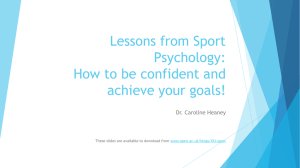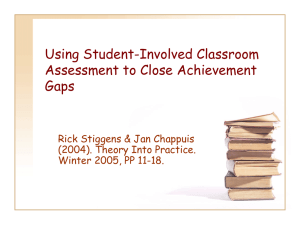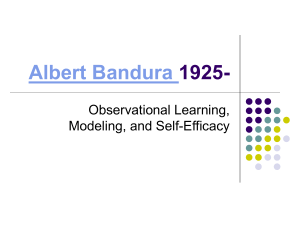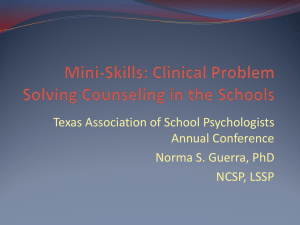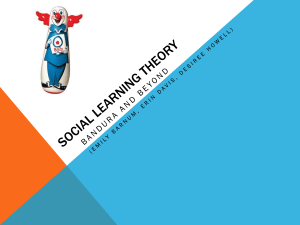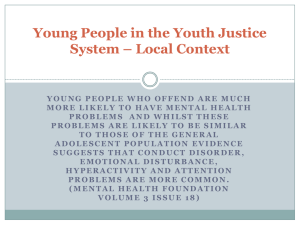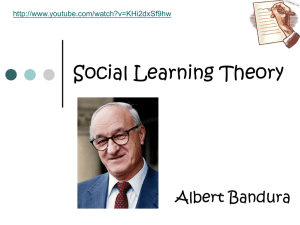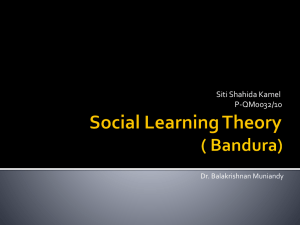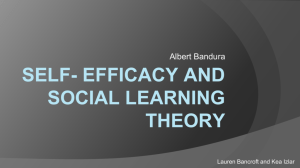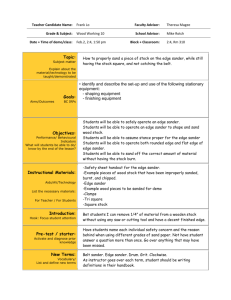BlogPost #4: Measuring confidence in academic study: An early
advertisement
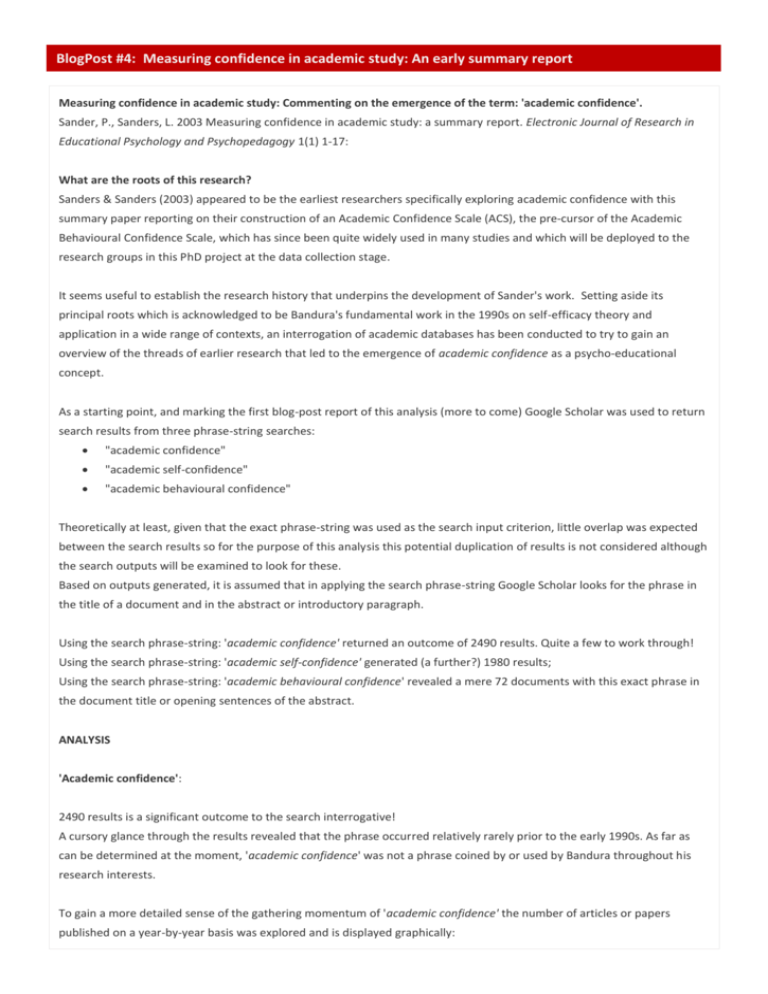
BlogPost #4: Measuring confidence in academic study: An early summary report Measuring confidence in academic study: Commenting on the emergence of the term: 'academic confidence'. Sander, P., Sanders, L. 2003 Measuring confidence in academic study: a summary report. Electronic Journal of Research in Educational Psychology and Psychopedagogy 1(1) 1-17: What are the roots of this research? Sanders & Sanders (2003) appeared to be the earliest researchers specifically exploring academic confidence with this summary paper reporting on their construction of an Academic Confidence Scale (ACS), the pre-cursor of the Academic Behavioural Confidence Scale, which has since been quite widely used in many studies and which will be deployed to the research groups in this PhD project at the data collection stage. It seems useful to establish the research history that underpins the development of Sander's work. Setting aside its principal roots which is acknowledged to be Bandura's fundamental work in the 1990s on self-efficacy theory and application in a wide range of contexts, an interrogation of academic databases has been conducted to try to gain an overview of the threads of earlier research that led to the emergence of academic confidence as a psycho-educational concept. As a starting point, and marking the first blog-post report of this analysis (more to come) Google Scholar was used to return search results from three phrase-string searches: "academic confidence" "academic self-confidence" "academic behavioural confidence" Theoretically at least, given that the exact phrase-string was used as the search input criterion, little overlap was expected between the search results so for the purpose of this analysis this potential duplication of results is not considered although the search outputs will be examined to look for these. Based on outputs generated, it is assumed that in applying the search phrase-string Google Scholar looks for the phrase in the title of a document and in the abstract or introductory paragraph. Using the search phrase-string: 'academic confidence' returned an outcome of 2490 results. Quite a few to work through! Using the search phrase-string: 'academic self-confidence' generated (a further?) 1980 results; Using the search phrase-string: 'academic behavioural confidence' revealed a mere 72 documents with this exact phrase in the document title or opening sentences of the abstract. ANALYSIS 'Academic confidence': 2490 results is a significant outcome to the search interrogative! A cursory glance through the results revealed that the phrase occurred relatively rarely prior to the early 1990s. As far as can be determined at the moment, 'academic confidence' was not a phrase coined by or used by Bandura throughout his research interests. To gain a more detailed sense of the gathering momentum of 'academic confidence' the number of articles or papers published on a year-by-year basis was explored and is displayed graphically: BlogPost #4: Measuring confidence in academic study: An early summary report It seems clear that research using the term/concept 'academic confidence' remained relatively static until 2003 albeit showing a gradual increase but since that year, the body of research that makes specific reference to ‘academic confidence’ has increased quite substantially. Modifying the search phrase-string to 'academic self-confidence' approximately 20% fewer results than 'academic confidence' and a similar trend is observed in that although there were a greater number of scholarly articles retrieved prior to 1992 (184 (ac s-c) c.f. 135 (ac c)), in subsequent years research appears to have mirrored the output levels of 'academic confidence'. Sander's term 'academic behavioural confidence' did not appear in any research prior to 2005 which is as we would expect since the term is his, appearing in his original paper (2003) cited at the head of this post. 'Academic self-confidence' and 'academic behavioural confidence' The same process was applied to these subsequent search phrase strings and Figure 1 shows the results of the Google Scholar searches and year-on-year analyses together. Teasing out what this means is the next task in which it will be interesting to establish whether each search phrase-string has generated mutually exclusive results or whether there is overlap. However it is clear that research gathered pace in 2004 indicating a substantial increase in interest in the concept of 'academic confidence / self-confidence' which may be due to the underpinning research in self-efficacy initially from Bandura as if not all, certainly most research use to underpin their studies, which Bandura himself updated in 1997 and from the researcher, Frank Pajares who contributed to the discourse with a seminal paper also published in 1997, which perhaps had a very significant impact on the research community as a whole as it successfully drew together many of the threads of research that used the psychological construct of ‘selfefficacy’ into the social science domain, particularly in education research. BlogPost #4: Measuring confidence in academic study: An early summary report Working on the relevance of each document or article retrieved by the searches for its relevance to this PhD project should be part of the necessarily exhaustive review of published research that will help to provide a robust foundation to the existing body of knowledge that informs the project. However, given the substantial quantity of scholarly articles that these searches have retrieved, the starting point for this analysis will be sift through the search outcomes according to fairly strict relevance restrictions - the first will be to look for studies that are related to the higher education sector. Following this we will 'take stock' of where this leaves the literature review in balance with the time available to focus on it. So more will appear on this post in due course. References: Bandura, A., 1997, Self-efficacy: the exercise of control, New York, W.H.Freeman & Co. Pajares, F., 1997, Current directions in self-efficacy research. In: M.Maehr & P.R.Pintrich (Eds.), Advances in motication and achievement, Vol 10 (pp. 1-49), Greenwich CT, JAI Press. Sander, P., Sanders, L., 2003, Measuring confidence in academic study: a summary report. Electronic Journal of Research in Educational Psychology and Psychopedagogy 1(1) 1-17.
